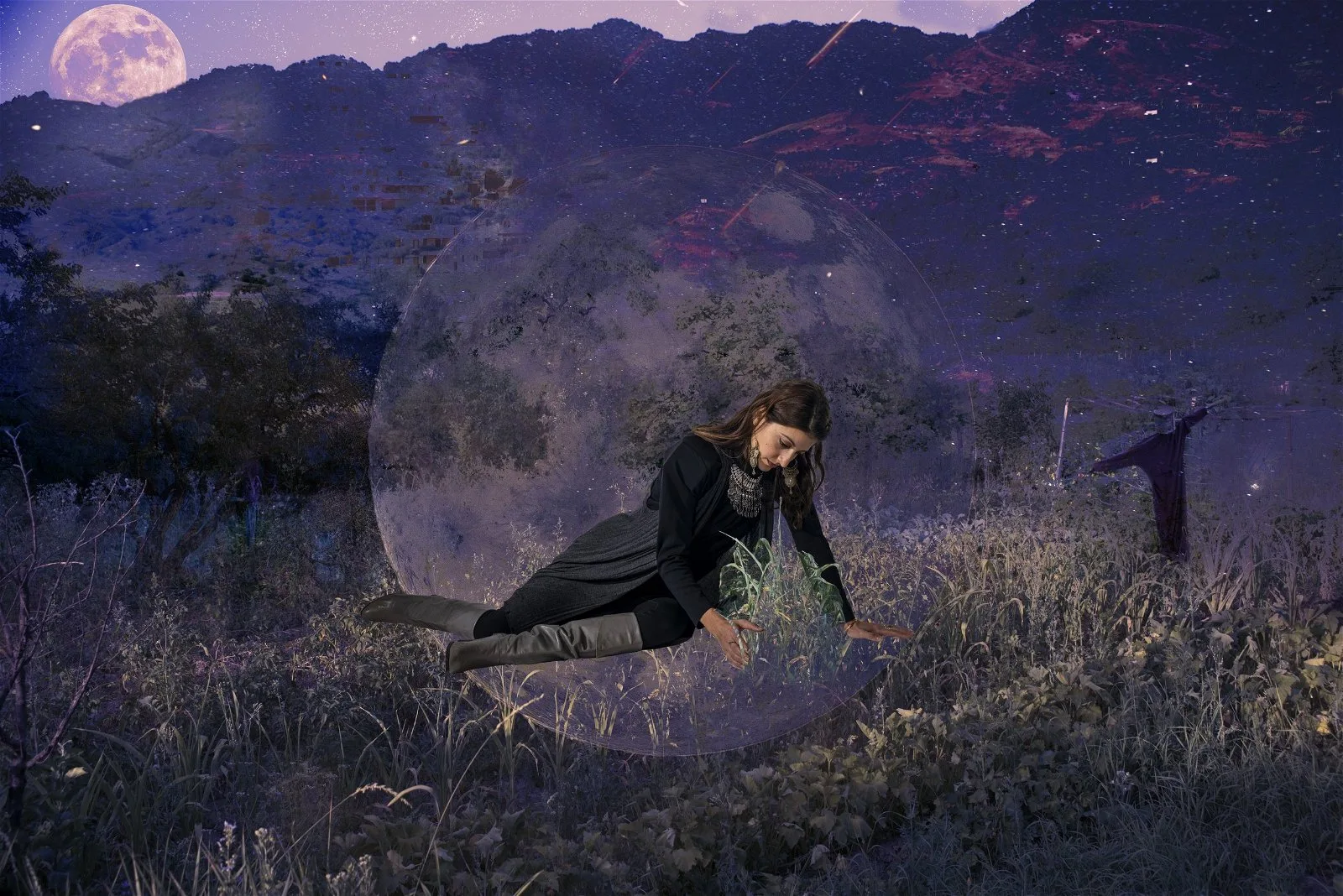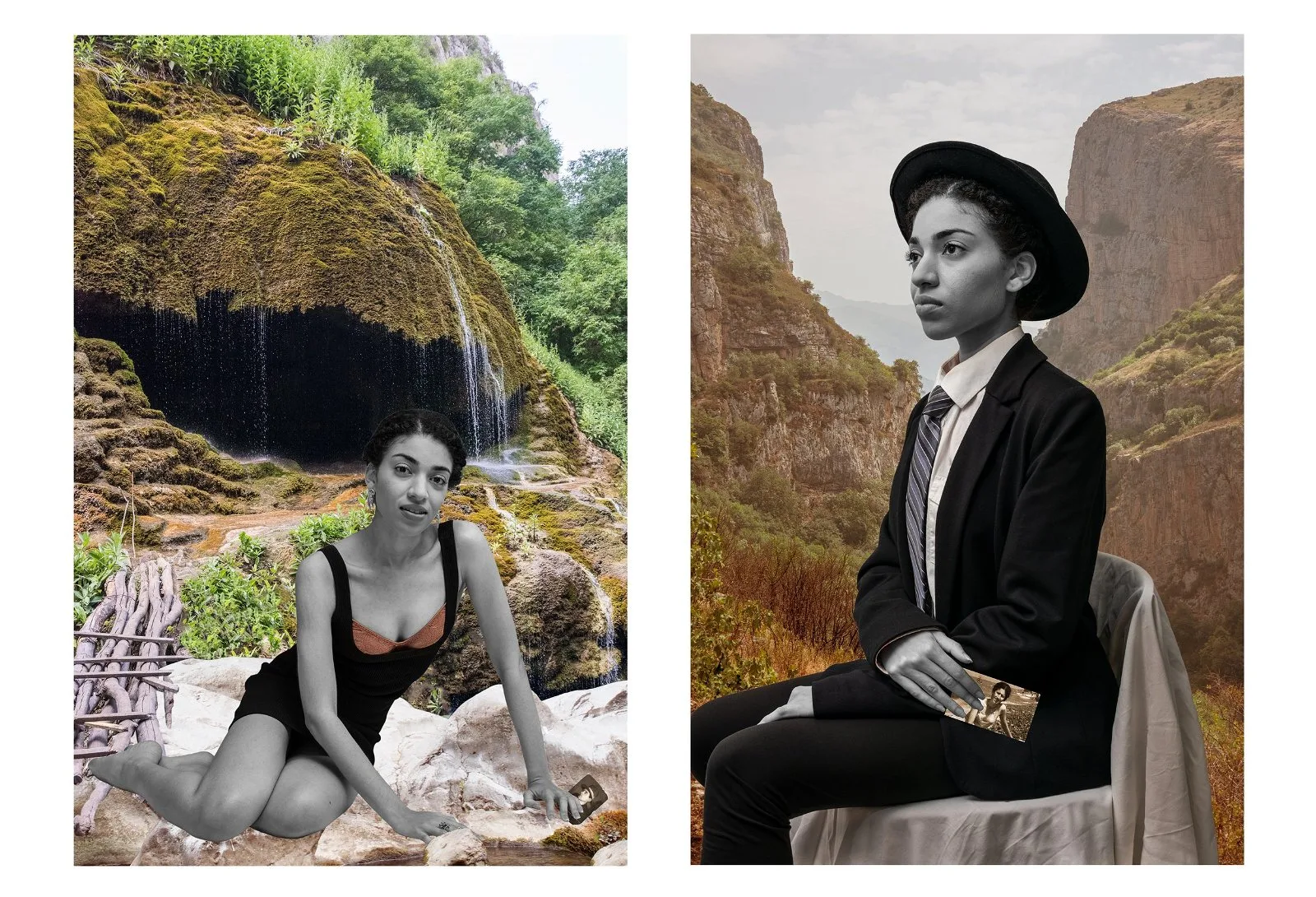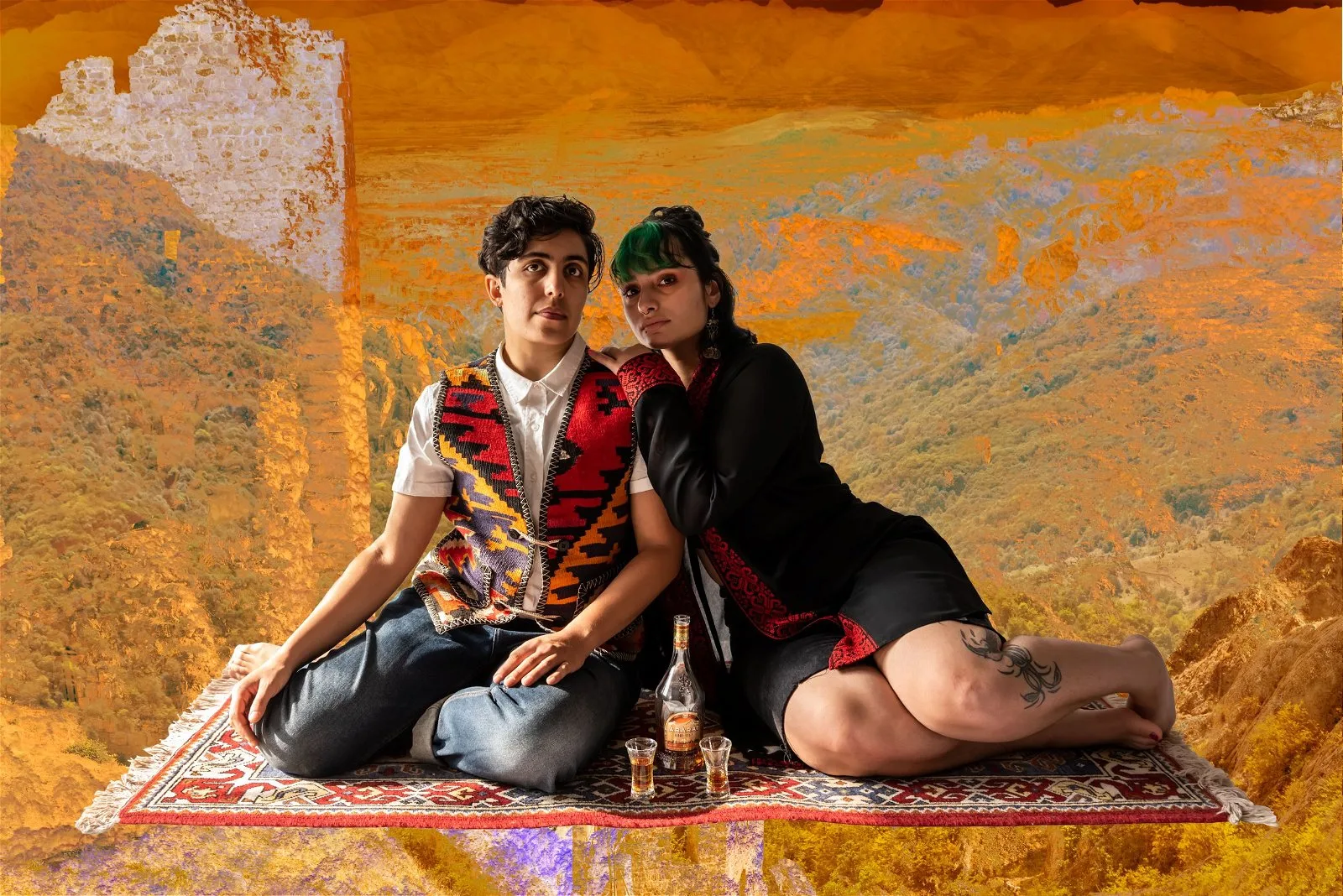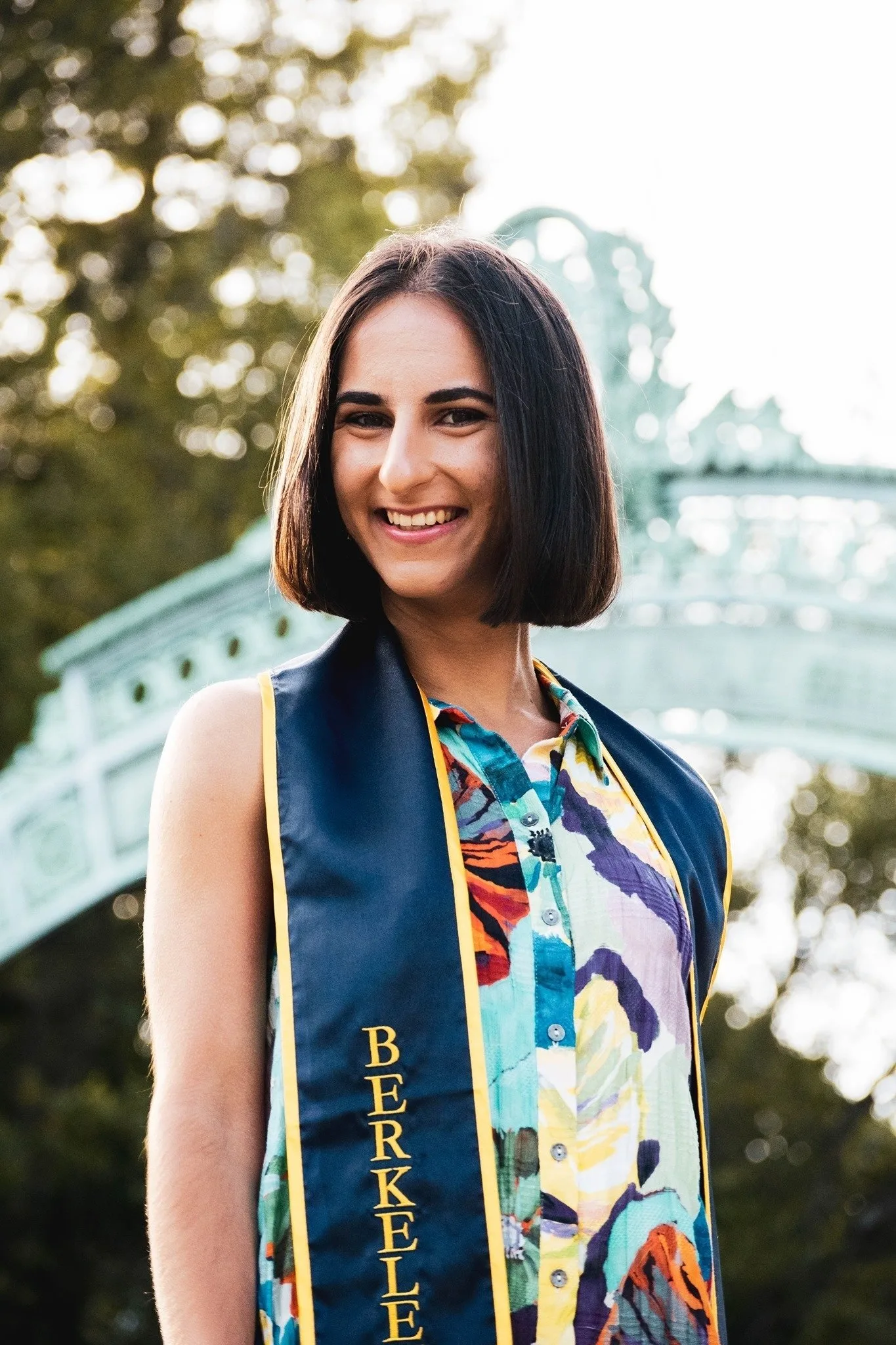Reparations of the Heart: Toward a SWANA Futurity
By Kristin Anahit Cass
Published by Fifth Wheel Press
In Reparations of the Heart: Toward a SWANA Futurity, artist and photographer Kristin Anahit Cass carries on the legacy of Armenian Futurism, an artistic and literary movement that grapples with the traumas inflicted by genocide and colonialism while envisioning a future of justice and healing. She imagines the world that “could have been, indeed that could be,” in her words, if SWANA peoples had not been subjected to colonialism and genocide and dispersed across the world.
I look forward to being in conversation with Cass at the book launch of Reparations of the Heart on Friday, April 19, 2024 from 6-8 p.m., hosted by the Atamian Hovsepian Curatorial Practice in New York.
Reparations of the Heart moves chronologically between past, present and future. In part one, Ancestors, Cass photographs members of SWANA diasporas living in their ancestral homelands, free of colonial violence. In part two, The Republic of My Imagination, she depicts members of diverse SWANA communities, including Armenians, Assyrians and Yezidis, building a multicultural home in an Anatolia unravaged by genocide. In part three, A Planet of Our Own, she uses elements of science fiction, including space travel and advanced technology, to envision a just future.
“As for many marginalized groups, our existence and survival, our healing and our joy are all radical acts of defiance in the face of societies that seek to silence or eliminate us,” Cass writes in Reparations of the Heart.

In Cass’s narrative of history, colonialism, genocide and displacement give way to self-determination, restitution and joy, made possible by an unmoored connection to one’s land, heritage and ancestry. In their ancestral homelands, the subjects in Cass’s photography rest and play. Adorned in their ancestral clothes, they lie on carpets, contemplate art and literature, and prepare dolma and za’atar. They hold each other with affection and appear at peace and untroubled.
By rewriting history, Cass presents an alternative vision for a better future. This practice in imagination interweaves the past and the future in the present by offering hope to the descendants of survivors of genocide and colonialism living in global diasporas. It also sketches a blueprint for how to create a utopia for SWANA communities.
“By re-visioning the past, we assert agency over our own narratives, turning aside from the stories told by the colonialist powers that displaced us. This connection to our past informs our present and offers guidance for our futures,” Cass writes in Reparations of the Heart.
In Cass’s vision of utopia, all are welcome. Her photographs depict people who are marginalized within SWANA communities along different vectors of identity, including gender, sexuality and race. Cass’s photography also embraces gender fluidity, depicting women dressed as their male ancestors; vulnerable, sensitive bonds between male friends; and androgynous expression.
In Tatik yev Papik: The Land is Our Mother and Father, Black Armenian activist Carene Rose Mekertichyan sits carefree in nature in a summery outfit, recreating a photo of her great-grandmother. In a more austere portrait, she portrays her great-grandfather in a suit and hat. The photos are accompanied by an excerpt from Mekertichyan’s essay in the Armenian Weekly.

In My Grandfather Talks to Fairuz, Lebanese American Amanda poses as their grandfather, wearing round glasses and clutching beads and a cigarette, and as singer Fairuz, regal in a feminine gown and headscarf. The two figures play backgammon and sip coffee, bordered by a grape vine.
“As we worked together, we talked about their spiritual journey and their journey to embrace their queer, Arab, Muslim, androgynous identity. Their discovery of a vintage pair of glasses that belonged to an uncle and were a perfect match for their own prescription came at a cathartic time of self-discovery and learning self-trust,” Cass wrote about photographing Amanda.
There are countless examples of Armenians in the diaspora producing photography and other forms of artwork exploring their ancestry in order to better define their identities in the present. Cass’s photography rejects the heteronormativity that has traditionally been a marker of this genre. This vital journey to self-understanding belongs to all members of the Armenian community, including those who are queer and gender diverse.

Cass’s photography also imagines a past in which Armenians lived and expressed their queer identities with visibility in their ancestral homeland. Gatekeepers of Armenian identity today often argue that homophobia and transphobia are traditional Armenian values inherited from history. Cass rejects this idea as ahistorical, offering an alternative narrative of the past in which queer expression was normalized and embraced.
Cass’s photographs also respond to the contemporary moment. In light of threats to LGBTQ Armenians worldwide, due to the lack of legal protections of their rights in the Republic of Armenia and the rising support for rightwing movements among Armenians in the United States, her photographs provide a refuge for queer Armenians to envision their safety and joy.
In her spirit of inviting, Cass includes original writings in the book by Armenian women and queer academics and artists, including essays by Nancy Agabian, Dr. Tamar Marie Boyadjian and Patricia Ononiwu Kaishian, poetry by Celeste Nazeli Snowber and a short story by Araxie Cass.
Reparations of the Heart is available to purchase at Fifth Wheel Press.




